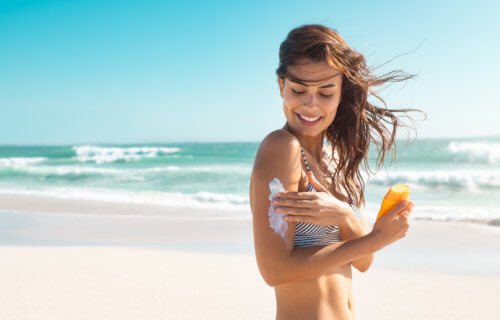MILAN, Italy — Many people still believe suntans are healthy, despite warnings about skin cancer and aging, a new study reveals.
Researchers found that, across Europe, many people have positive opinions when it comes to turning a shade of bronze out in the sun. Eight in 10 people say that tans are “attractive.”
What this is worrying, researchers say, is because 73 percent of Europeans believe that getting a tan is healthy, despite sun exposure’s long-time connection to skin cancer and accelerated aging.
Most people (92%) were aware of the risks, but 84 percent admit they still don’t protect themselves all year round.
According to latest estimates, around 1.7 percent of adults in Europe have skin cancer. This is around 7.3 million people across the continent. The first sign of skin cancer normally is a discolored area or lump on the skin that can grow over time.
Ultraviolet light from the sun is also responsible for more than 80 percent of skin aging. It can cause lines, wrinkles, and blemishes.
The survey, presented at the 31st European Academy of Dermatology and Venereology Congress, revealed that only 56 percent knew that sun protection was still necessary on cloudy days and one in four thought it was safe to go outside without sun protection when they already had a tan.
In total, only 10 percent of Europeans say they regularly use sun protection all year round.
“The public must also understand that they need to protect their skin all year round, even during overcast weather conditions,” says Professor Thierry Passeron, the chair of dermatology at the University hospital of Nice, in a media release.
People in non-European countries, such as North and South America, Africa, Oceania, and Asia, were less enthusiastic about suntans, but 59 percent still believed that having a tan was healthy.
“We must drive awareness of the damage to skin cells caused by exposure to the sun, which can lead to photoaging and skin cancer. This is particularly important in Europe where sun protection appears most inadequate compared to other countries” adds Prof. Passeron.
The researchers surveyed 17,000 people from 17 countries, with 6,000 of them coming from the U.K., Germany, France, Spain, Italy, and Russia.
Protecting yourself from the sun is easy and cheap. Putting on a hat or rubbing on some spf 50 can make a big difference.
“Once sunscreen has been applied, it must be reapplied every 2 hours to ensure sufficient protection. Other measures such as wearing sunglasses, a hat, and protective clothing, and seeking shade when it is possible, are also key photoprotection habits,” Prof. Passeron concludes.
South West News Service writer Alice Clifford contributed to this report.
